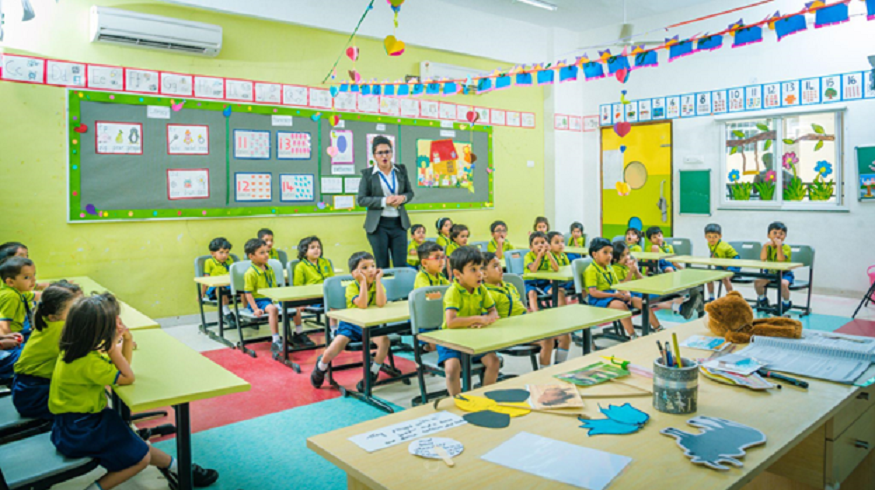The development of our children’s language and communication skills is greatly influenced by us as parents. We can assist our children in developing strong speaking skills that will benefit them throughout their lives by creating a supportive environment at home. In the comfort of your own home, we’ll look at ten practical techniques to improve your kids’ speech in this article. Here are some tips for parents on how to enhance their children’s speech at home. You may assist your child in developing better vocabulary, articulation, and communication skills by using these ten tactics.
How To Improve Your Child’s Speech At Home
Navigating the path of raising a child can be one of the most fulfilling journeys in one’s life. A significant milestone in this journey is witnessing the developmental strides in your child’s speech and communication skills. It’s essential to foster an environment at home where your child can naturally improve their speaking abilities. Here, are ten intuitive ways you can seamlessly nurture your child’s speech at home.
1. Be an Attentive Listener
An essential step in enhancing your child’s speech is to actively listen to what they say. It instils a sense of confidence in them when they see their words hold value. Ensure to make eye contact and show genuine interest in their stories, however incoherent they might seem at first.
2. Encourage Conversations
Engaging your child in daily conversations can help in sharpening their speech skills. You can discuss the day’s events, the storyline of a book, or their feelings. The objective is to encourage them to express themselves verbally, promoting vocabulary expansion and sentence structuring.
3. Read Together
A cornerstone in developing your child’s speech is reading. Make it a habit to read together, be it during bedtime or a quiet afternoon. Point to the words as you read them, allowing the child to visually connect the spoken words with the text.
4. Play Interactive Games
Interactive games not only foster bonding but also facilitate language development. Games that require taking turns, asking questions, or narrating a sequence of events can be quite fruitful. Scrabble, charades, and story-building games could be excellent choices.
5. Maintain a Rich Vocabulary
While communicating with your child, introduce them to a rich and varied vocabulary. It needn’t be too complex but ensure to use a diversity of words. It would give them a greater palette of words to choose from when expressing themselves.
6. Watch Quality Television Programs
Though limiting screen time is essential, curated television programs can be educative. Choose programs that are interactive, encourage thinking, and enhance vocabulary. Engaging documentaries on nature or science can also be intriguing and educational.
7. Practice Pronunciation
Dedicate time to practice pronunciation with your child. You can make it a fun activity by incorporating tongue twisters, songs, and rhymes. It not only aids in speech clarity but also assists in understanding different phonetic sounds.
8. Create a Narrative
Encourage your child to create narratives. They can narrate a series of events, describe a picture, or even come up with imaginative stories. It is a fantastic way to foster creativity alongside improving speech.
9. Patience and Encouragement
Remember that every child has a unique pace of learning. It is crucial to remain patient and consistently encourage them. Celebrate their little milestones and always provide positive reinforcement.
10. Consult a Specialist if Necessary
Lastly, if you observe any significant delay or difficulty in your child’s speech development, do not hesitate to consult a specialist. Early intervention can play a pivotal role in ensuring healthy development.
Improving your child’s speech at home is a gradual yet highly rewarding process. Through nurturing a supportive environment that encourages open communication, playing interactive games, and enhancing vocabulary through reading and visual aids, parents can play a pivotal role in a child’s speech development. As you navigate this nurturing path, bear in mind that patience, attentiveness, and a structured approach are your best companions. Keep it fun, keep it educational, and most importantly, keep it loving. The home is the first school, and you are the first teacher; let’s make learning speech a joyous venture at your home academy!
Speech Therapy At Home
As parents, we have the power to enhance our children’s speech abilities by creating a nurturing and engaging environment at home. There are a number of things that parents can do to help their child with speech therapy at home. These include:
- Modeling good speech: Parents should speak clearly and correctly in front of their child. This will help their child learn how to produce the correct sounds and words.
- Providing opportunities for practice: Parents should provide their child with opportunities to practice their speech skills throughout the day. This could involve playing games, reading stories, or simply talking to their child.
- Using positive reinforcement: Parents should use positive reinforcement to encourage their child’s speech development. This could involve giving them praise, stickers, or other rewards.
- Being patient: Speech therapy can be a slow process. It is important to be patient with your child and to not get discouraged if they do not see results immediately.
- Make it fun! Speech therapy should be enjoyable for both you and your child. Choose activities that your child enjoys and that will help them practice their speech skills.
- Be consistent. The more you practice, the better your child will become at speaking clearly. Try to set aside some time each day to work on speech therapy activities.
- Be patient. It takes time for children to learn new skills. Don’t get discouraged if your child doesn’t see results immediately. Just keep practicing and you will eventually see improvement.
Parents can give speech therapy at home. However, it is important to work with a speech-language pathologist (SLP) to get the right guidance and support. The SLP can assess your child’s speech and language skills and develop a treatment plan that is tailored to their individual needs. If you are concerned about your child’s speech, it is important to talk to your pediatrician.
EuroSchool also creates a supportive and encouraging environment for all children to develop their speech skills. Teachers are trained to provide positive reinforcement and constructive feedback, and students are given opportunities to practice their speaking skills in a variety of settings.











